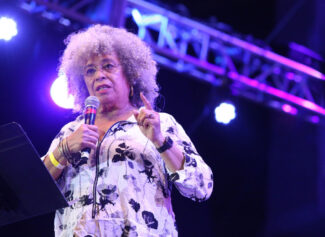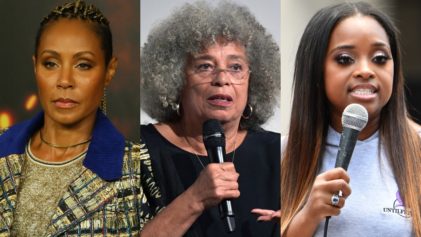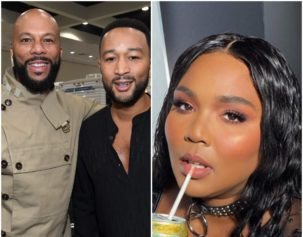Angela Davis never sought to become an international political icon. However, that’s exactly what she became, thanks to the state of California.
When Davis was brought to trial by the state in 1972 on charges of murder, kidnapping and criminal conspiracy, she started down the path that would make her a legend, according to the documentary “Free Angela and All Political Prisoners,” premiering in select theaters on April 5.
Host Melissa Harris-Perry on Saturday spoke with “Free Angela” writer/director Shola Lynch about why Davis catapulted to such infamy.
“Then Governor Ronald Reagan gave her a national media platform because he wanted her fired for her politics,” Lynch said. “What she said is, ‘you want to fire me, no. I’m a communist and that’s what I do but I’m going to talk about George Jackson, the Soledad brothers, and what it means to be a quote-unquote criminal and define that as a political prisoner.’”
Davis had been an intellectual activist for years, but in 1969 she was thrown into the spotlight when UCLA fired her from her teaching position because she was a member of the Communist party. She was subsequently re-hired and then fired again because of her involvement with the Soledad brothers, three men accused of killing a prison guard. A charge many thought to be trumped-up to stop the political work the men were doing inside Soledad prison.
Her situation was further complicated in 1970 when she was implicated and charged with buying the guns for a thwarted escape attempt for one of the Soledad brothers—George Jackson—which resulted in the death of four people, including a judge and Jackson’s 17-year-old brother, Jonathan.
Davis went underground and was put on the FBI’s 10 Most Wanted list.
She was on the run for more than two months before she was caught on October 13, 1970. Davis was imprisoned for 16 months before she was released on bail.
An international movement to free Davis began and lasted until a verdict was reached. According to Lynch, people stood behind Davis because “she stands firm. She never plays the victim. She never apologizes for her politics and I think that’s one of the things as a woman to see play out in this story is really fortifying. Whether you agree with her politics or not.”
Read More: tv.msnbc.com


